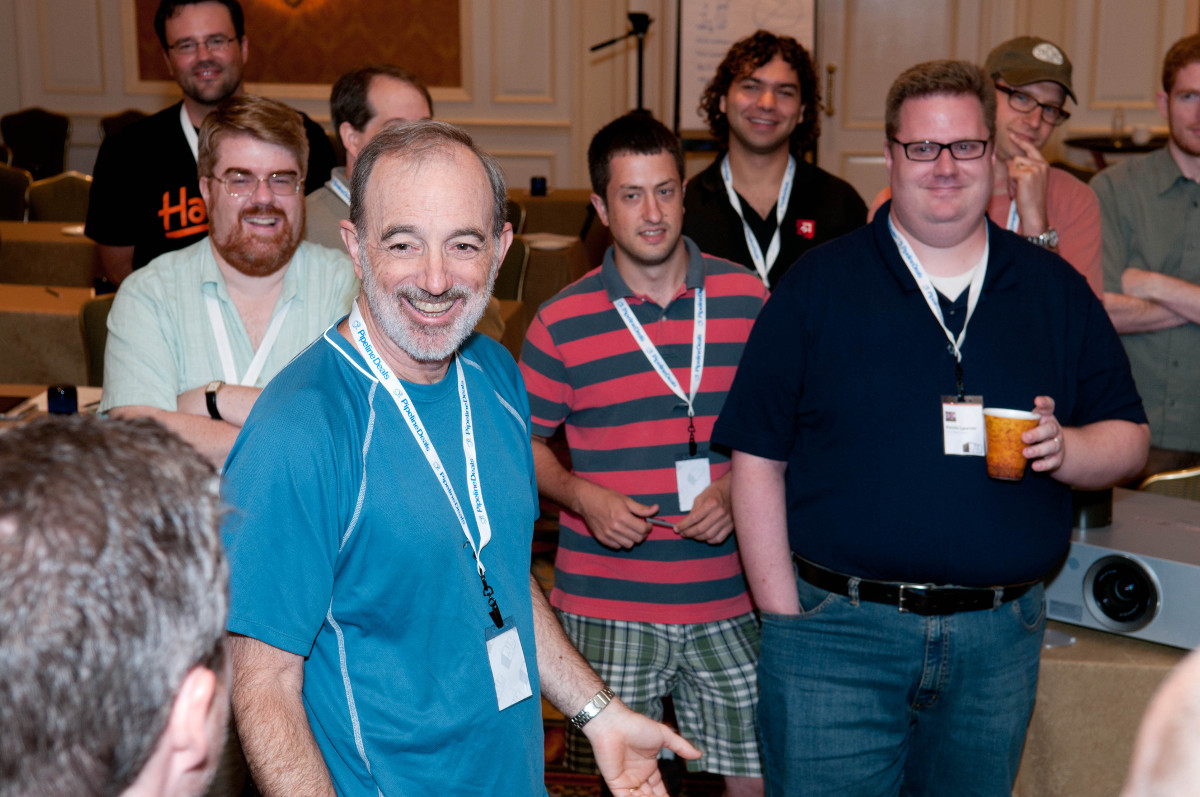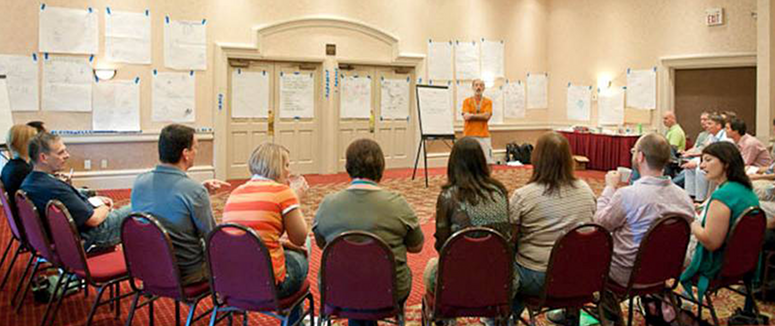WORKSHOPS
These workshops utilize Piaget’s Model of learning where learning is the process of constructing, not receiving, new knowledge. They use experiential activities to engage learners so the learners become active participants in the learning process. Their learning consists of three phases:


Exploration
In the exploration phase, students working in small groups, explore a new environment on their own, with minimal interventions on the part of the instructor. This phase is the learner’s personal encounter with the new material. The instructor’s principal role in the exploration phase is designing a task that will force the students to call their existing models into question.
Invention
The invention phase brings the entire group together, with the instructor playing a leading role. The group tries to make sense of the data generated during exploration. They work in an analytical mode, trying to generalize from their data by inventing new concepts or tools. The instructor may provide the standard technical terms for these “inventions,” or present a model in current use, or even deliver a mini-lecture to illuminate or integrate the student’s inventions.
Application
This phase completes the learning cycle by creating the opportunity for the students to interact with the world once again, this time using their newly acquired models. As in the exploration phase, the instructor merely provides a structure and observes the learners working in their small groups.
Problem Solving Leadership
Learn and practice a leader’s most valuable asset: the ability to think and act creatively. We believe that leadership is the key to building a healthy organization that can deal effectively with change. We teach that leadership is the ability to create an environment that enables everyone to contribute productively. … read more here.
Coaching Beyond the Team: Influencing the System
Learn how to coach beyond the team.
Agile coaches and Scrum Masters face many challenges. They have no authority to insist people listen or do, yet managers and executives expect organization-wide results from their activities. Furthermore, many executives see clearly how teams should change, but don’t see how the environment or their own actions impact teams. read more here.
